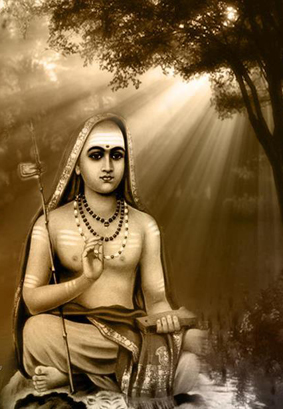Q: Will an ‘upload’ be capable of giving mokSha to a computer? By ‘upload’ I am referring to the Science Fiction concept of scanning the contents of a human brain down to the quantum level, and then simulating that complex entity in a virtual environment. Ray Kurzweil is a key proponent who claims this will be possible sometime within the next few decades.
A: The mind is rather more than just data, and more than processing-software running on brain hardware. Although all these things are ultimately Consciousness alone, there has to be something there to reflect the light of Consciousness in order for a thing actually to become conscious. And it has to do this very well indeed before it can become self-conscious. And it has to do it brilliantly in order to gain mokSha! I don’t think uploads satisfy these criteria!
Q: I agree with your answer, but I suppose the answer will depend largely on the assumptions one makes in thinking through the problem. Can reflected consciousness arise in a silicon-based entity? Or only carbon-based creatures like ourselves? It’s actually a pretty stimulating question, and it touches on the ‘hard problem’ as defined by David Chalmers, etc. If you ever do get around to reading his book, he has an interesting thought experiment on the principle of organizational invariance, where neurons are one-by-one replaced with silicon equivalents. At what point does consciousness (which here would only be reflected) disappear in this process? Not asking for an answer from you – just wanted to mention this aspect of the question.
A: You are still assuming that consciousness relates to the gross body – replacing carbon with silicon. The mind is the subtle body in Advaita. Having said that, I see no reason why there should not be silicon-based life forms associated with subtle bodies elsewhere in the universe…
Q: Good point, thanks. It makes me wonder though, if the mind is the subtle body and doesn’t relate to the gross body/brain, then why is the subtle body affected at all when the brain becomes physically damaged? I was thinking in terms of reflected consciousness arising in the ‘mirror’ that consisted of gross + subtle body.
A: Good point, too. I guess the metaphor of computers does come into play here, the mind needing the hardware of the brain in order to manifest (better word than function, since it retains the autonomy of the subtle body, which is supposed to migrate to a new body after the death of the existing one).




